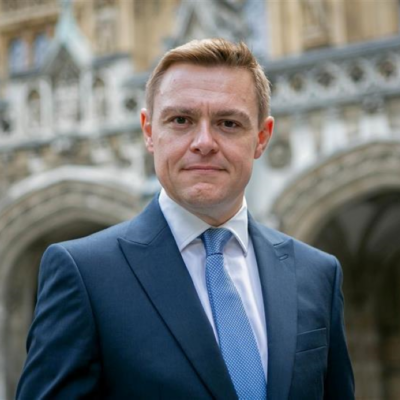Ministers like to shout about increased budgets this year, promising all schools more funding per pupil. But what’s the reality? Tom Belger investigates…
The government is slashing per-pupil funding for more than 1,300 schools next year – and overall budgets for thousands more – despite rampant inflation, new analysis shows.
The findings undermine ministers’ claims about every school getting extra cash.
Critics also accuse ministers of “levelling down”, particularly in areas such as London which has been hit hard by falling rolls and funding reforms.
Ministers’ funding claims challenged
Jonathan Gullis, the new school standards minister, recently said schools would receive £1.5 billion more in 2023-24.
Will Quince, his predecessor, said over the summer that a funding floor ensured “every school attracts at least 0.5 per cent more pupil-led funding per pupil”.
But analysis of provisional school budget data by the National Education Union and Schools Week suggests a less rosy picture.
More than a third of primaries and a quarter of secondaries face per-pupil hikes of below 1 per cent next year under the schools part of the national funding formula.

This is despite inflation running at 9.9 per cent, and higher-than-expected energy and pay costs.
In reality the Department for Education plans to cut per-pupil budgets for some 1,266 primaries and 105 secondaries. They face average falls of 2.7 per cent.
Andrew Baisley, a National Education Union (NEU) analyst, said: “It gives the lie to the idea all schools are seeing funding rise. Funding’s being levelled down to the lowest rates.”
Ministers’ comments were “selective”, he said.
Quince referred to protecting “pupil-led funding”, which normally makes up the majority of budgets (in per-pupil terms). However, so-called school-led funding, which accounts for 7 per cent of average budgets, is not.
School-led funding includes a flat per-school sum and top-ups for small, remote and private finance initiative schools, or exceptional costs.
Small primaries take funding hit
The 1,371 schools losing out – spread across every region – are mainly small primaries, which are more reliant on this unprotected funding. Rolls and budgets have risen in most, but not enough to sustain per-pupil levels.

Yet 128 small schools face not only per-pupil, but also overall funding cuts. Their declines average 3.9 per cent (£87,000), almost double the average 2 per cent drop in the number of pupils. “It’s concerning, and not easily explained,” Baisley said.
The DfE said declines could reflect changing school circumstances such as moving from a split to a single site, or falling business rates requiring lower subsidies.
Meanwhile, Quince said the national funding formula reforms meant a 1.9 per cent hike in not only per-pupil, but also overall funding.
But such figures obscure who wins and loses. Some 6,163 schools, almost a third, will attract less overall funding next year, losing £297.3 million between them.
Dr Mary Bousted, the joint general secretary of the NEU, said pupils faced “another punishing round of cuts”.
Figures do not include extra pots such as high-needs funding, but some schools say costs exceed such budgets – and figures exclude some councils’ deductions.
London schools feel family exodus
The overall funding cuts unsurprisingly seemed partly linked to pupil numbers, with average rolls in affected schools dropping 4.7 per cent this year.
Falling birth rates have reduced primary rolls since 2019, with a bulge in students moving into secondary schools.
London is particularly squeezed. It is the only region with falling total pupil numbers, losing 7,000 this year. Inner London faces the lowest total (0.1 per cent) and per-pupil (1.3 per cent) cash rises,
while some regions will have total or per-pupil gains of 2.5 per cent or more.
Nine councils’ schools face net declines in overall funding – all in London. Hackney, Lambeth and Haringey will lose more than £1 million each.
Rolls in Hackney’s primaries have dropped 13 per cent since 2016, with one in ten Haringey reception places unfilled.

Both councils’ education chiefs say affordable housing shortages are driving families outside London with many European families moving abroad since Brexit.
One London primary head said some families had made a “lifestyle choice” to leave London since Covid, seeking green space and benefiting from remote working.
Councils and trusts can partially redistribute cash to protect schools. But it means cuts elsewhere – and council freedom to deviate from national funding formula rules has been gradually curbed.
Hackney is losing its ability to be more generous overall; Haringey its ability to weight funding more towards pupils on free school meals.
The NFF, designed to equalise per-pupil funding nationwide with some areas such as London better funded than others, has also cut relative premiums each deprived pupil attracts.
The National Audit Office links this to real-terms declines in per-pupil funding since 2017 in deprived London boroughs, and cities such as Birmingham.
Fewer pupils, but school maintenance the same
Jo Riley, the head of Randal Cremer Primary School in Hackney, said London schools faced “constant juggling to balance the budget”.
“Every year, when I look at predicted numbers my heart sinks at having to make yet another round of redundancies.”
She added that although funding declined, her Victorian school cost “just as much to maintain as when we had more children”.

The Lion Academy Trust has “sought to diversify” beyond London into “areas where the NFF was more favourable”.
Chris Stark, its chief executive, said pressures meant many London schools “simply have to be the local school of choice”.
Haringey will consult next month on “reductions in school capacity”.
Simon Pink, the finance director at the Elliot Foundation, predicts wider “rationalisation”. It closed Lena Gardens, a west London primary, in 2019, blaming Brexit and welfare cuts for unviable pupil numbers.
With less funding for deprived areas, including outside London, the NFF has also “got away from what additional funding was designed to do”.
Pink said the trust’s schools had not seen “anything like” the average per-pupil hikes highlighted by government. Next year would be “painful”.
A government spokesperson highlighted a 7 per cent per-pupil rise to core funding in 2022-23, and said the NFF “distributes this funding fairly. No school is receiving a per-pupil ‘cut’ to pupil-led funding.”
















Your thoughts